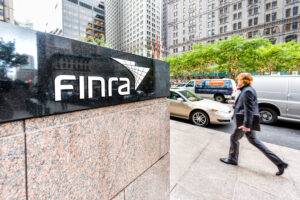Unauthorized Trading Lawyers
In the realm of retail brokerage, there are two primary types of customer accounts that dictate the level of control a broker has over trading decisions. The most common arrangement requires a financial advsior to seek permission prior to making trades, the failure to do so may constitutie unauthorized trading.The second type, known as a discretionary account, allows the brokerage firm to buy and sell securities without obtaining prior approval from the client for each transaction. However, all trading activities within a discretionary account must strictly adhere to the guidelines and limits previously established by the client and the firm. This means that a broker is not authorized to make trades that exceed the boundaries of the authority granted by the client.
Unauthorized Trading is Prohibited by Securities Regulators and FINRA
The second and more prevalent type of account in retail brokerage firms is the non-discretionary account. In this arrangement, the broker is required to obtain explicit consent from the client before executing any trade. Unauthorized trading occurs when a broker executes a transaction without the prior approval of the customer. This is a serious breach of the rules governing non-discretionary accounts and can lead to significant financial consequences for the investor.
Unauthorized trading is a form of broker misconduct that can undermine investor trust and financial stability. When such incidents occur, it is crucial for investors to have recourse to legal assistance. Attorneys experienced in securities law are essential in these situations, as they have the expertise to handle cases of unauthorized trading in FINRA arbitration. These legal professionals can help clients navigate the complex process of filing claims and seeking compensation for losses incurred due to unauthorized trades.
Securities attorneys play a pivotal role in investigating claims of unauthorized trading. They work diligently to gather evidence, such as trading records and communications between the broker and client, to establish whether trades were executed without proper authorization. By providing legal representation in arbitration or court proceedings, these attorneys ensure that investors’ rights are protected and that they receive just compensation for any unauthorized actions taken in their accounts.
Moreover, attorneys can also help in reinforcing the safeguards against unauthorized trading by advising brokerage firms on compliance and supervisory practices. This guidance helps firms prevent future incidents of unauthorized trading and promotes a higher standard of integrity within the financial services industry.
If Unauthorized Trading Occurs In My Brokerage Account What Should I Do?
For investors who suspect unauthorized trading in their accounts, consulting with a knowledgeable securities attorney is a critical step. These legal experts provide the advocacy and support necessary to address the issue effectively, ensuring that investors can recover from any unauthorized actions and safeguard their investments against future violations.
There are limited instances when a brokerage firm may trade without the consent of a non-discretionary customer. One such instance is when a customer has a margin account and the value of the account falls below the firm’s maintenance requirements. Margin liquidation without notice is permitted by the account agreements of almost all brokerage and clearing firms.
Bakhtiari & Harrison is an AV-rated law firm focused on the worldwide representation of clients in complex arbitration, litigation, and related legal services in securities industry matters.
The firm’s partners have extensive experience in securities, employment and regulatory matters. Our focus is on delivering strategic and creative client-centric solutions. 
We represent high net-worth individuals, institutions, and hedge funds in securities arbitration and litigation claims before FINRA (Financial Industry Regulatory Authority), AAA (American Arbitration Association), other arbitration providers, and state and federal courts.
The firm represents financial services professionals, registered investment advisors and broker-dealers in employment matters, industry disputes and regulatory investigations.
